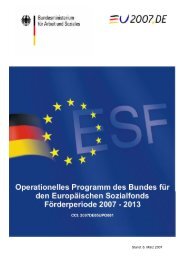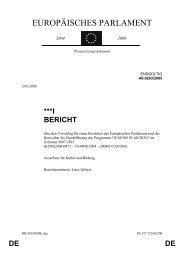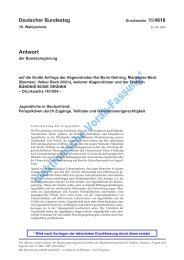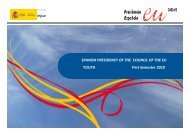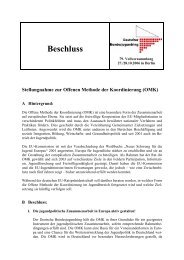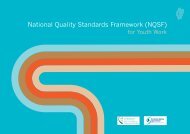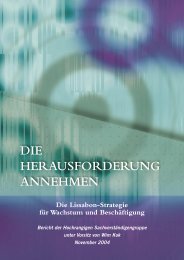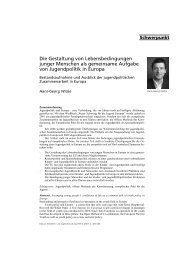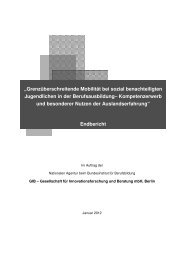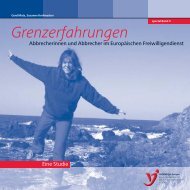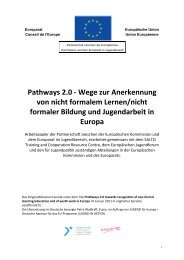Report - Salto
Report - Salto
Report - Salto
Create successful ePaper yourself
Turn your PDF publications into a flip-book with our unique Google optimized e-Paper software.
24<br />
Bridges for Recognition | Sketching the Framework - Offi cial Opening<br />
The Council of Europe and its efforts for recognition – Peter Lauritzen<br />
Peter Lauritzen gave conference an historical perspective on youth work and non formal education:<br />
At the beginning of the twentieth century a typical 14 year old boy in Munich worked twelve<br />
hours a day, seven days and week. In these conditions, 90% of young people were excluded<br />
from knowledge.<br />
Youth organisations were formed during the first part of the century with the single aim<br />
of reducing work time to give more time for learning and culture. The 1920’s German youth<br />
movements were not protest movements; they were “more like a long term Woodstock”. Sadly<br />
they were taken over by first the fascists and later the communists.<br />
Over the years, youth work and young people have become associated with change. NFE has<br />
indeed helped to bring about change – not least the increase in access to education for young<br />
people.<br />
There have been those who believed that NFE should promote confrontation with the formal<br />
education sector; others have taken a compensatory approach to NFE, others a complimentary<br />
approach. There are some who take a workers approach and others and emancipatory approach<br />
(women, third world). All this goes to highlight the complexity of the issue of recognition.<br />
In some senses, recognition is not new (Education Populaire involved 100,000 people), however<br />
some of the problems of recognition are new. For example the breakdown of solidarity in society,<br />
the breakdown of communism; the adoption by some schools of NFE approaches, technological<br />
developments, migration movements and the demise of the old contract between education and<br />
jobs.<br />
NFE is now working from a more timid position. The approach has become one of looking up to<br />
see if we can help rather than demonstrating the confidence of earlier years.<br />
Reconstruction is underway though; the 1998 Ministerial conference in Bucharest and the 2001<br />
meeting of the Council of ministers helped to reconnect some of the links between formal and<br />
non formal education at the political level in the Council of Europe.



